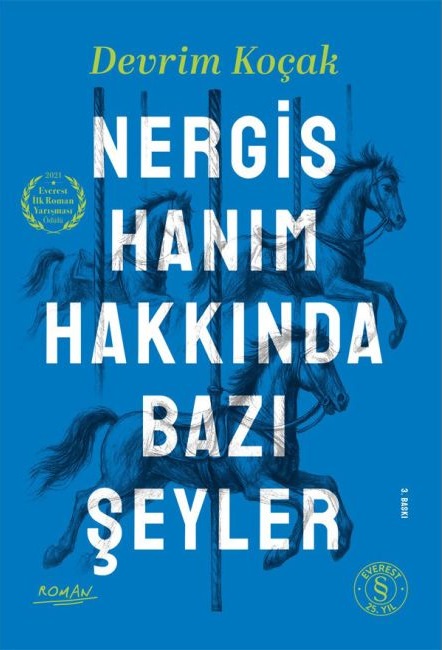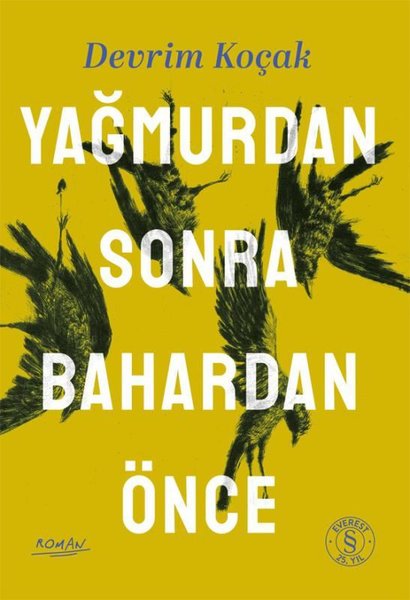Is Yaşar Kemal’s ‘Ince Memed’ character truly free, or is he a figure trapped in the public’s expectation of a hero?
Yaşar Kemal’s İnce Memed character presents a deep philosophical discussion as both an individual and a social figure shaped by the tension between freedom and necessity. Is İnce Memed’s freedom defined solely by his own will, or is it limited by the people’s commitment to the heroic myth? In search of an answer to this question, we can examine the nature of freedom, the individual’s relationship with society, and the mythopoetic hero archetype through a philosophical lens.
The Existential Dimension of Freedom: İnce Memed’s Will
In existential philosophy, freedom is associated with the individual’s capacity to create his own meaning. According to Jean-Paul Sartre, man is “condemned to freedom”; every choice is an act by which the individual constructs his own essence. İnce Memed is a character born in the feudal order of Çukurova and raised in the shadow of poverty and oppression. At first glance, his becoming a bandit is an act of rebellion, a search for freedom. Leaving his village and going up to the mountains is an attempt to create an autonomous space against the existing order. This is similar to Kierkegaard’s “existential leap”: Memed stops being a passive victim and chooses his own path.
However, there is a paradox in Sartre’s understanding of freedom: Freedom also brings responsibility. Ince Memed’s going up to the mountains is not only a personal liberation, but also an obligation to take on the suffering of the people. While fighting against the tyrannical lords, Memed becomes responsive to the expectations of others rather than his own desires. At this point, his freedom can be questioned: Is Memed constructing his own essence, or is he submitting to the “hero” role that the people have assigned to him?
Social Context and Hegemony: The Trap of Heroism
Antonio Gramsci’s concept of hegemony provides a useful framework for understanding Ince Memed’s situation. Hegemony explains how the cultural and ideological norms of a society shape the thoughts and behaviors of individuals. The peasant society of Çukurova, under the oppression of the feudal order, needs a savior figure. Ince Memed emerges as a product of this social demand. The villagers turn his story into an epic, turning him into a mythological hero. In this process, Memed’s individual freedom is reconstructed in the collective consciousness of the people.
Hegel’s master-slave dialectic comes into play here as well. Although Memed rises to the position of “master” by fighting against the landowners, he is trapped in a new form of “slavery” by the people’s dependence on him and their expectations. While the villagers see Memed as a liberating figure, they also place the responsibility of their own liberation on his shoulders. This is a paradox that limits Memed’s freedom: He fights to be free, but this fight chains him to the people’s heroic narrative.
The Mythopoetic Hero and the Limits of Freedom
Joseph Campbell’s “hero’s journey” monomyth can be applied to Ince Memed’s story. Memed leaves an ordinary world (village) for an extraordinary world (mountain), passes the tests and returns as a hero. However, in Campbell’s model, the hero experiences an individual transformation at the end of the journey. In Memed, this transformation is not complete. His heroism serves a social ideal rather than an individual victory. This contradicts Nietzsche’s concept of the “superman” because the superman is independent of the values imposed by society. Memed, on the other hand, is defined by the values of the people: justice, courage, sacrifice.
From Nietzsche’s perspective, Memed’s freedom may be a reflection of “herd morality.” While the people glorify Memed as a savior, they subordinate his individual will to a collective purpose. Instead of creating his own existential meaning, Memed becomes a symbol of the people’s search for meaning. This overshadows his freedom because freedom is possible when the individual creates his own values, not by serving those of others.
Freedom and Tragedy: Memed’s Dilemma
Memed’s story is filled with the tragedy of freedom. Albert Camus’s “rebel man” sheds light on Memed’s struggle. According to Camus, rebellion is man’s effort to give meaning to an absurd world. Memed rebels against the absurdity of the feudal order, but this rebellion drags him into a new absurdity: the people’s expectation of a hero. Like Camus’s Sisyphus, Memed is faced with an endless struggle. Every victory brings a new responsibility; every moment of freedom is overshadowed by a new chain.
In this context, Memed’s freedom can also be thought of with Hannah Arendt’s concept of “action.” According to Arendt, freedom occurs when an individual takes action in the public sphere. Memed’s struggle against the lords is one such action. However, Arendt emphasizes that in order for freedom to be sustained, the individual’s actions must remain autonomous. As Memed’s actions become trapped in the public narrative, he loses his autonomy. He ceases to be a free agent and becomes the bearer of a myth.



